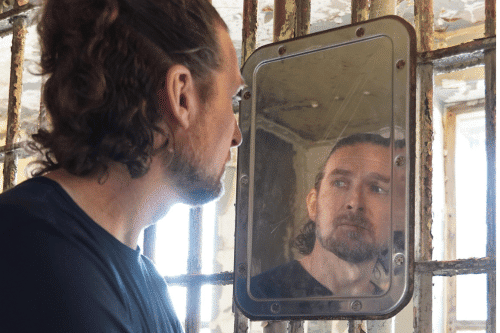- 3822 Campus Dr #300-B, Newport Beach, CA 92660
Loving a partner who struggles with addiction is one of the hardest things to experience. It feels isolating, confusing, and overwhelming. The pain you experience can pile even higher when the person you love refuses to get help.
If your partner with addiction won’t agree to treatment, you’re not alone, and you’re not powerless. This guide will walk you through what to do when an addict refuses help by giving you honest and compassionate advice to navigate the emotional weight of it all.
An intervention is a structured conversation. It’s often the first serious attempt to confront a loved one’s addictive behavior. Yet, many patients feel a deep sense of betrayal.
This reaction is common. The individual may feel ambushed by people they trust. The safe space they once felt in their family or intimate relationship can suddenly seem hostile.
Addiction distorts reality. Substance abuse affects how the brain processes information, fear, and trust. When confronted, many feel judged and exposed.
Shame and guilt drive this perception. Major depressive disorder and anxiety are common in people with substance use disorder (SUD). These mental health symptoms amplify negative feelings.
The mind perceives an intervention as punishment, not support. This triggers emotional pain—often expressed as anger, resentment, or withdrawal.

Denial is a defense mechanism. It shields the person from the full weight of their substance use. A direct confrontation forces them to face their behavior.
This can feel like an attack. Feelings of betrayal, fear, and irritability may spike. The addict may accuse family members of controlling them or breaking trust.
These emotional responses are part of the brain’s reward system reacting to sudden stress. Dopamine patterns disrupted by addiction seek balance—even if it means rejecting help.
In codependent families, roles are blurred. A parent or spouse may enable the behavior, hoping to avoid conflict. When these same people stage an intervention, it feels like a trap.
This creates confusion. The person may ask, “Why now?” or accuse loved ones of hypocrisy. Patterns of neglect, emotional abuse, or unresolved grief deepen the betrayal.
Family therapy can help uncover these unhealthy dynamics. Mental health professionals use conversation, empathy, and active listening to rebuild trust.
Chronic drug or alcohol use erodes interpersonal trust. Addictive behavior often involves lies, broken promises, or infidelity. These habits damage marriages and intimate relationships.
When the family finally intervenes, it can feel like justice rather than support. The addict’s mind links intervention with loss—of control, of connection, of dignity.
Substances like opioids, benzodiazepines, and fentanyl affect mood and judgment. Under these influences, the idea of betrayal may feel justified, even if it’s not rational.

Therapy sessions can bring clarity. In couples therapy, both partners share how addiction impacted the relationship. This includes fear, stress, and unmet emotional needs.
For families, therapy creates a space to air anger, resentment, and guilt. The health professional acts as a neutral party, facilitating healing.
Dialectical behavior therapy (DBT) is often used. It teaches skills like distress tolerance and emotional regulation—key tools in reducing perceived betrayal.
Co-occurring disorders such as major depressive disorder or generalized anxiety disorder complicate recovery. They increase emotional sensitivity and reduce coping ability.
A person struggling with opioid use disorder may already feel neglected or judged. A sudden confrontation—no matter how well-meaning—can push them further into isolation.
Physicians and mental health experts often recommend integrated care. This includes medication, therapy, and support groups to stabilize mood and rebuild trust.
Planning is critical. Staging an intervention without preparation increases the risk of emotional fallout. Partnering with an expert or professional interventionist is highly recommended.
These experts use strategies that emphasize compassion and understanding. They help choose the right people to be involved and coach the family on language that avoids blame.
The goal is to reduce risk and keep the conversation focused on care—not criticism. Emotional safety must be preserved for all involved.
From the addict’s point of view, the world often feels unsafe. Past trauma, intimate partner violence, or domestic violence may shape their worldview.
They may see family as part of the problem. Betrayal, in this context, stems from old wounds. The intervention might feel like confirmation that no one truly understands them.
By practicing empathy and creating a safe space, families can shift the dynamic. Active listening and validation help the person feel heard—even in conflict.
Yes, but it takes time. Rebuilding trust is a process. The person must feel that the family’s desire is rooted in love, not control.
Continued support during rehab is essential. Being present during treatment, attending therapy sessions, and showing patience can reverse betrayal.
Over time, family can become a source of strength. This often involves accepting new boundaries and reimagining what a healthy relationship looks like.

After staging an intervention, reactions may vary. Some people enter rehab immediately. Others express anger, grief, or silence.
These reactions are not failures. They are part of processing pain, betrayal, and the sudden loss of a substance-centered lifestyle.
Mental health support for the family is just as important. Social work professionals often suggest support groups like Al-Anon or Partnership to End Addiction.
Relapse is common. It can reactivate old emotions—especially if the family believed the problem was solved. Addicts may also feel they’ve let everyone down.
This shame may turn into resentment. They might say, “You made me go to rehab, and it didn’t work.” This creates more distance.
Instead of blaming, families should focus on the long game. Addiction is a chronic condition. Like any illness, it requires ongoing care and support.
Access to treatment matters. Insurance coverage can make or break a person’s path to sobriety. If care is interrupted due to cost, betrayal may deepen.
Families should be informed. Knowing what their insurance covers, what medications like antidepressants or medicine-assisted treatments are available, and how to continue therapy post-rehab is critical.
Informed decisions reduce frustration and make the process smoother for everyone involved.
Ultimately, the best way to counteract feelings of betrayal is empathy. Understanding does not mean enabling. It means staying connected through the discomfort.
Addiction is lonely. The patient needs to feel part of a community. The more the family demonstrates commitment, the less power betrayal holds.
Support, education, and patience can shift the outcome. Betrayal can evolve into healing.
Family Interventions specializes in guiding families through the emotional and logistical challenges of staging an intervention. Our experts help reduce the risk of perceived betrayal by planning each step carefully—choosing the right setting, participants, and language to maintain a safe space. With deep experience in substance abuse, psychology, and mental health care, we support you in addressing issues like opioid use disorder, prescription drug addiction, and co-occurring conditions such as anxiety or major depressive disorder.
We also provide follow-up care options, including family therapy, couples therapy, and treatment referrals. Whether you’re dealing with resentment, grief, or relapse, our team helps rebuild trust and strengthen relationships. Family Interventions stands by your side from the first conversation through long-term recovery, supporting both the patient and the family as partners in healing.
While it can cause short-term strain, many families repair and even strengthen relationships after an intervention through therapy and ongoing support.
Stay calm and avoid threats. Follow up with consistent support, clear boundaries, and possibly consult a health professional for alternative strategies.
Children should not attend. Interventions are emotionally intense and may not be appropriate or safe for minors to witness.
Start therapy as soon as possible. Both the addicted individual and family members benefit from early professional support to manage emotional fallout.